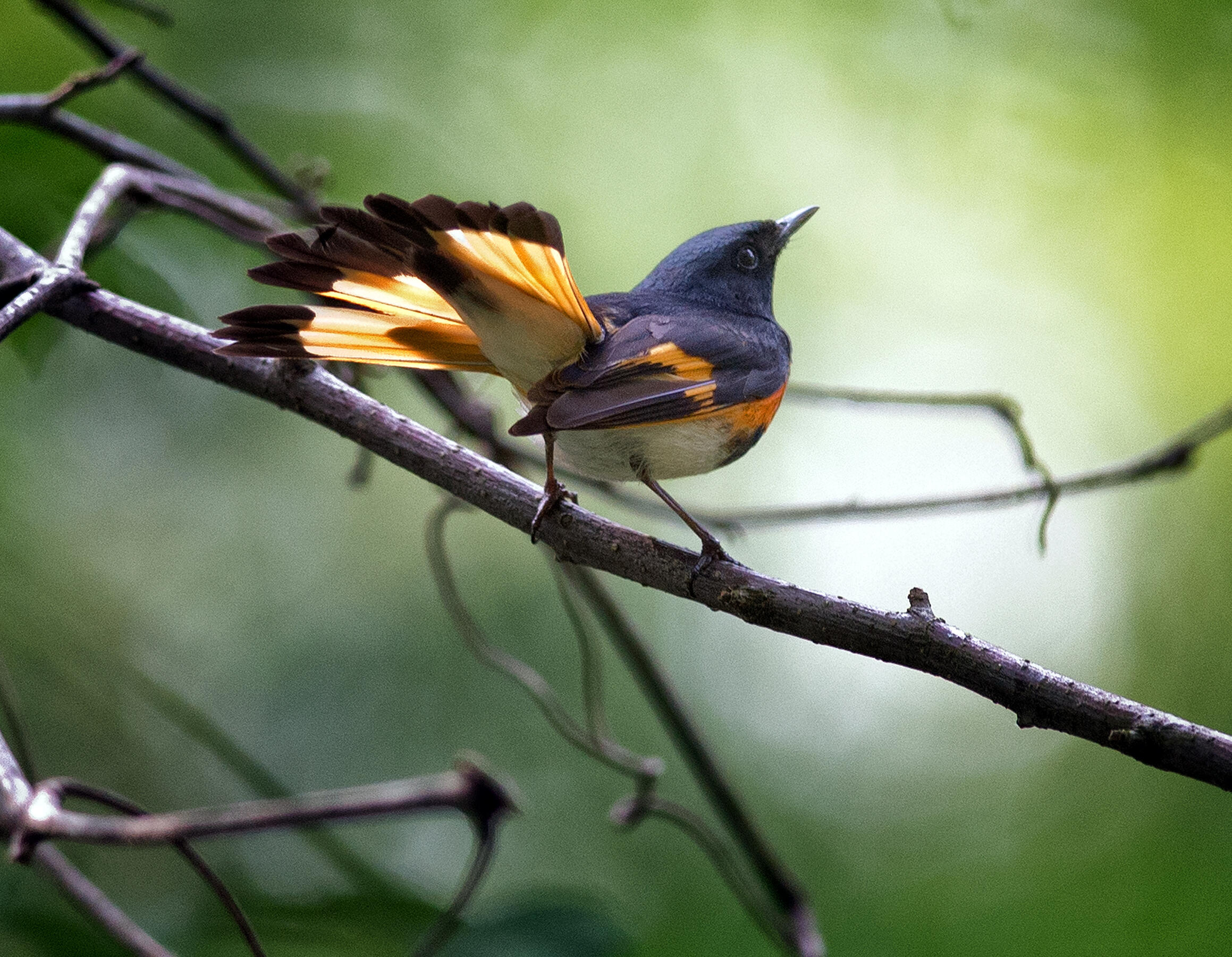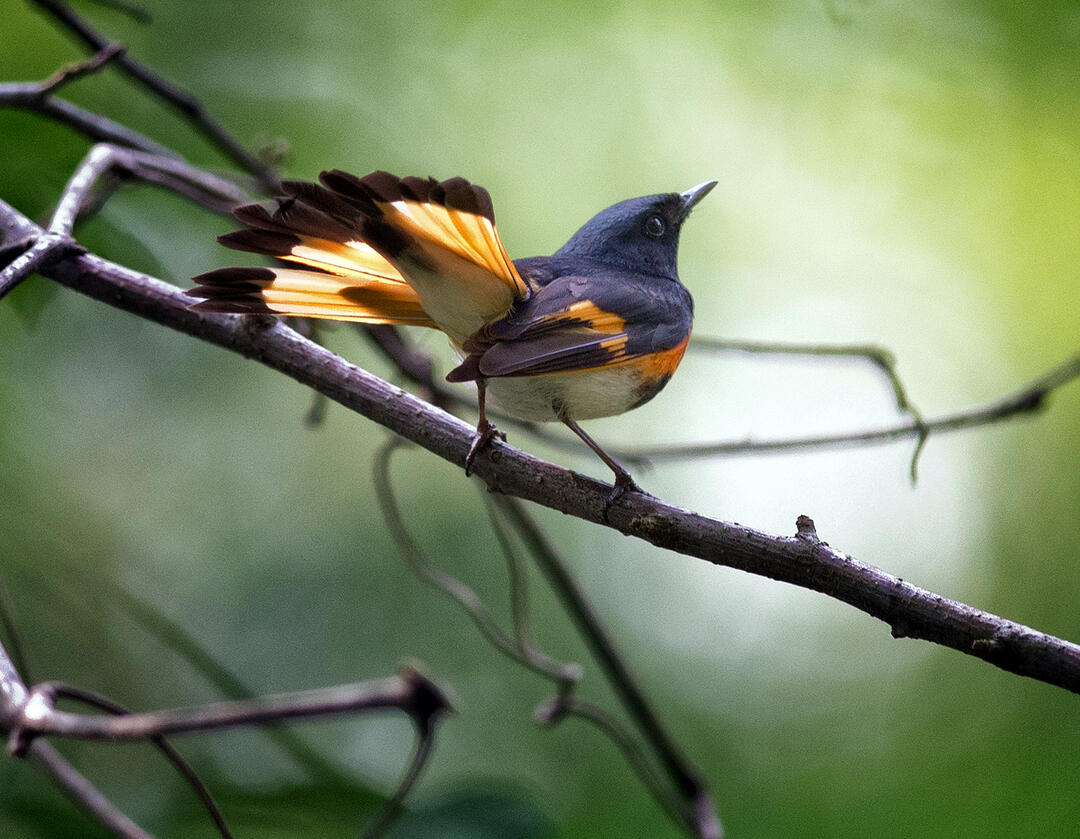The Director of Conservation will lead the development of landscape level conservation objectives for the implementation of Audubon’s priority conservation strategies in Vermont for the benefit of birds and the places they need to thrive. They will be responsible for leading the Vermont conservation team in achieving the science driven conservation objectives of the National Audubon Society (NAS) with a particular focus on working lands and forests; specifically leading forest protection and stewardship efforts, as part of Audubon’s Healthy Forests Initiative. They will design and conduct programs aimed at engaging private, non-profit and forest owners and managers, both public and private, to promote sustainable forest management techniques that create habitat required by priority forest bird species.
As Director of Conservation, they will work with other conservation leadership in the Atlantic Flyway. They will collaborate with natural resource agencies (federal, state, county, and municipal), and private conservation organizations, for successful implementation of their work across the landscape in Vermont and the Flyway. The Director of Conservation will work closely with national, flyway, and state fundraising, science, engagement, and policy teams to build sustainable income streams, engagement efforts, and conservation science strategies, and will support policy priorities to further Audubon’s conservation objectives in the region.
Reporting to the Vice President and Executive Director for Audubon Vermont, the Director of Conservation will manage the conservation staff in Vermont, including tracking conservation activity and defining measures of success. They will develop funding proposals to foundations, corporations, agencies, and individuals. This role will also be responsible for identifying funding opportunities and managing the funding relationships with natural resource agencies at multiple levels of governance along with some funder and donor relationships as assigned.
Essential Functions
- In collaboration with the Executive Director, develop and implement conservation strategies for the benefit of birds in Vermont and the region.
- Working with the Executive Director and VT conservation team, design and direct the conservation programs in Vermont to be fully aligned with NAS’ strategic plan, maximizing Audubon’s impact by integrating work across the full suite of Audubon’s national and regional science, conservation, network, policy, and development teams.
- Lead efforts to identify, prioritize, and increase implementation of healthy forest practices in Vermont to restore, manage and protect habitat required by priority bird species.
- Support and oversee the work of the conservation team in other key areas including the protection of bird species of greatest conservation concern, and the implementation of the Bird Friendly Farming, and Birds and Watersheds programs.
- Further Audubon’s reputation through building partnerships and coalitions with a network of land and wildlife management agencies, NGOs, and community scientists.
- Oversee the incorporation of community science engagement in Audubon’s conservation work and the analysis of these data and those collected by Audubon staff to inform adaptive management strategies and understand outcomes of conservation action.
- Manage staff and engage volunteers, as needed, to implement Audubon’s conservation programs.
- Design, implement, and direct measures of success focused on birds and habitat across priority landscapes.
- Provide technical expertise related to birds and habitat in the region to internal and external audiences and partners.
- Research and secure public and private funding opportunities to support conservation programs.
- Support the Audubon Vermont Executive Director with development activities including solicitation of gifts and prospect development. Specific activities may include, but are not limited to, leading bird walks and giving presentations to existing and prospective donors.
- Coordinate with policy, education, and communications staff not under direct supervision to guide planning, monitoring, and conservation implementation in the areas overseen by Audubon Vermont.
- Integrate these efforts into Atlantic Flyway conservation plans and goals.
Qualifications and Experience
- B.S. in ornithology, avian ecology, forestry, natural resources, conservation biology, wildlife management, or a closely related field required, Master’s or PhD degree preferred. Equivalent combination of education and experience will also be considered.
- 10+ years of experience in natural resources management, biology, or related environmental or conservation work and at least 3 years of management experience, specifically leading professional teams.
- Licensed Vermont forester, or ability to become one, preferred.
- Knowledge of and ability to identify birds of Vermont and their habitat requirements, working knowledge of native plants and shrubs that support birds in Vermont, and understanding of conservation issues in Vermont.
- Outstanding interpersonal skills, judgment, and a demonstrated ability to collaborate and build coalitions with a wide range of individuals and organizations.
- Excellent oral and written communications skills and the ability to synthesize and communicate technical and complex information to both technical and non‐technical audiences.
- Experience in project management including managing grants (writing proposals, coordinating with relevant funders, completing reports, and administering contracts), and stewarding other relevant projects.
- Experience overseeing complex or multiple projects through to success, including meeting financial goals, metrics, project deadlines, and coordinating the work of key staff and partners.
- Fundraising experience, specifically from public agencies and in conservation preferred.
- Experience working with public agencies (federal, state and local).
- Self‐motivated and willing to work in a flexible, non‐structured environment.
- Ability to traverse uneven and steep terrain in inclement weather while carrying field equipment with or without accommodation. Willingness to travel in cars, planes, boats and other vehicles.
- Proficiency with Microsoft Office, working knowledge of GIS technology preferred.
- Must have a valid driver’s license and ability to provide own transportation.





